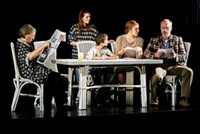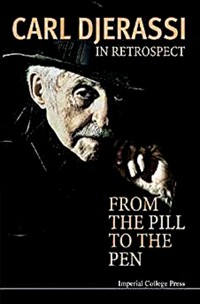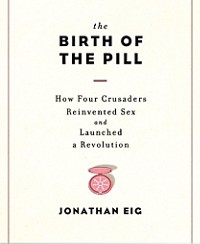Advertisement
Grab your lab coat. Let's get started
Welcome!
Welcome!
Create an account below to get 6 C&EN articles per month, receive newsletters and more - all free.
It seems this is your first time logging in online. Please enter the following information to continue.
As an ACS member you automatically get access to this site. All we need is few more details to create your reading experience.
Not you? Sign in with a different account.
Not you? Sign in with a different account.
ERROR 1
ERROR 1
ERROR 2
ERROR 2
ERROR 2
ERROR 2
ERROR 2
Password and Confirm password must match.
If you have an ACS member number, please enter it here so we can link this account to your membership. (optional)
ERROR 2
ACS values your privacy. By submitting your information, you are gaining access to C&EN and subscribing to our weekly newsletter. We use the information you provide to make your reading experience better, and we will never sell your data to third party members.
Biological Chemistry
Sex And Reproduction
by Rudy M. Baum
September 22, 2008
| A version of this story appeared in
Volume 86, Issue 38
CARL DJERASSI is obsessed with reproduction.
It's not surprising, really. One of the major figures of 20th-century chemistry, Djerassi practically started his career with the synthesis of norethindrone, which formed the basis of the first oral contraceptive. He is often referred to as "the father of the pill."
The pill decoupled sex from reproduction and ushered in a social revolution, the effects of which are still being played out. Djerassi has been fascinated by the social effects of the birth control pill throughout his professional life.
For at least the past decade, Djerassi has also been fascinated by another reproductive technology, intracytoplasmic sperm injection (ICSI), which accomplishes the flip side of what the pill accomplished: ICSI decouples reproduction from sex.
In the late 1980s, Djerassi began to turn from chemistry to literature, and he is the author of four novels he has characterized as "science in fiction" and a half-dozen plays. All of his literary work has had scientific themes at its core.
Two weeks ago, I had the pleasure of attending the first preview performance in the U.S. of Djerassi's latest play, "Taboos," at the SoHo Playhouse in New York City. "Taboos" is a powerful examination of the numerous conundrums that can flow from decoupling reproduction from sex.
(Full disclosure: I have known Carl for nearly 30 years and consider him a friend. That said, I think some of his novels are better than others and have said so in print.)
"Taboos" focuses on five characters. Sally and Harriet are professional women in their 30s living in San Francisco. They are in a committed lesbian relationship, and Sally has decided to have a baby. Sally's Fundamentalist Christian family in Mississippi has cut off contact with her because of her sexual orientation, but her brother Cameron has tentatively reached out to her. Cameron and his wife Priscilla live in Mississippi and are having difficulties conceiving a child. Max is Harriett's single younger brother, a lawyer in the San Francisco public defender's office. The play takes place over the course of about two years, during which time Sally, Harriet, and Priscilla all give birth to sons. The genetic provenance of the children is complex due to the methods through which they were conceived, and this complexity allows Djerassi to explore a number of important themes.
At one point late in the play, when many of the complex relationships have been revealed, Max suggests to his sister that she may need him to represent her.
Harriet: But you don't know anything about family law.
Max: That's not important. Your kind of family law hasn't been written yet. For a start, how would a lawyer define Cameron's roles? He's the father of twins ... each from a different legal mother ... some sort of uncle-in-law of his own son and uncle of his son's stepbrother ... (He throws up his hands.) I could go on.
A few lines later, Max observes, "Some legal journal will have a field day reporting this if it ever comes to trial."
What fascinates Djerassi, and drives this emotionally charged drama, is the long-standing tension between nature and nurture, dramatically complicated by the decoupling of reproduction from sex that technological reproduction permits. Harriet, for example, has a cold, rational view of a 16-cell embryo created by ICSI residing in a petri dish as just a clump of cells, until she is confronted by the infant that clump of cells was transformed into.
Djerassi also published with "Taboos" a companion "play," "ICSI: A Pedagogic Wordplay for Two Voices with Audiovisuals" which deals with some of the same issues as "Taboos." A bit of a didactic bent has been a drawback in some of Djerassi's previous writing. He seems to have used "ICSI" to exorcise those tendencies in writing "Taboos," which is simply a fine drama.
"Taboos" runs from Sept. 10 to Oct. 19, Wednesday through Saturday at 8 PM, and Saturday and Sunday at 3 PM.
Thanks for reading.
Views expressed on this page are those of the author and not necessarily those of ACS.





Join the conversation
Contact the reporter
Submit a Letter to the Editor for publication
Engage with us on Twitter